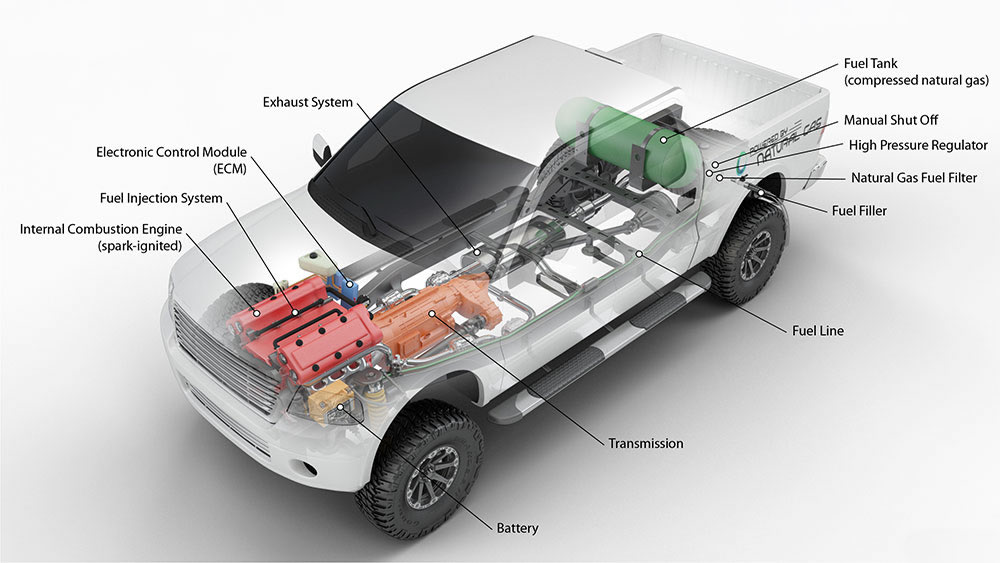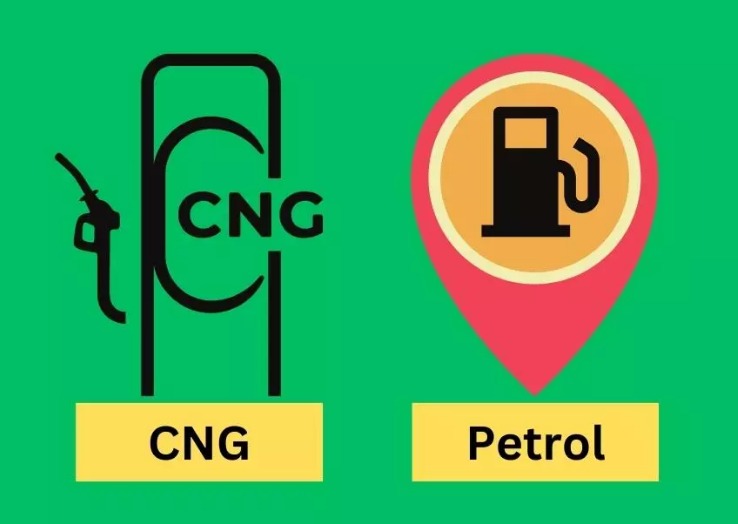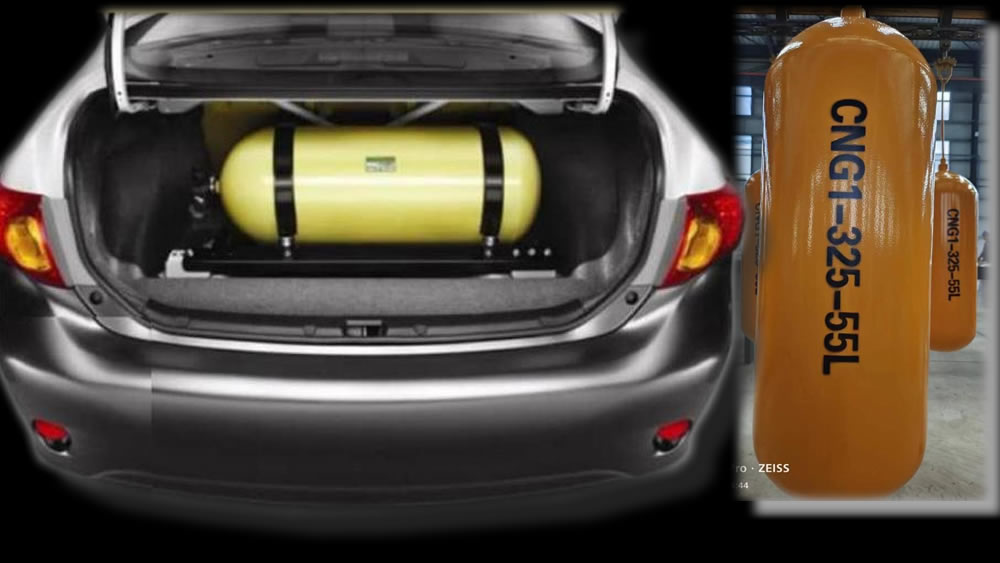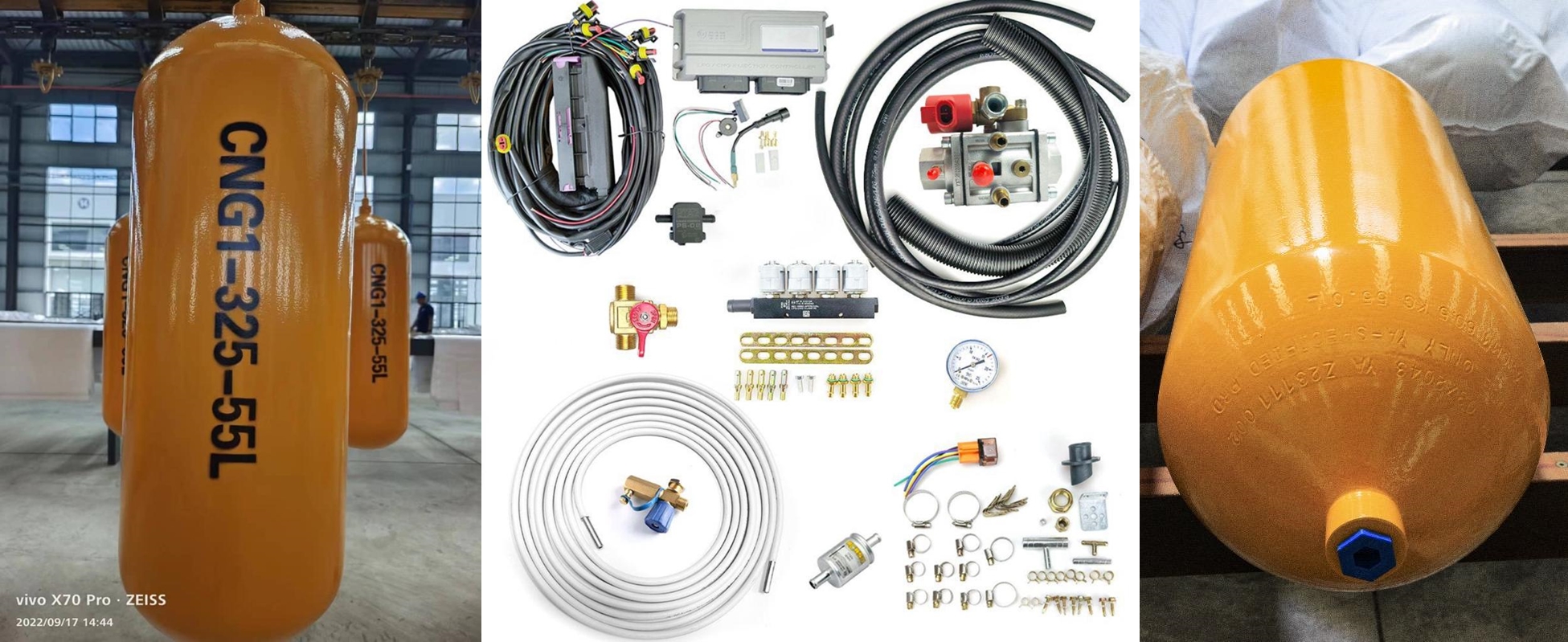Why you need to convert your petrol vehicle to CNG vehicle
Converting petrol vehicles to Compressed Natural Gas (CNG) vehicles in Nigeria makes strong economic sense for individual vehicle owners, particularly in light of the removal of petrol subsidies by the federal government. Between June and November, 2023, prices of petrol shot up from an average of N185 per litre to N650 per litre, depending on where you reside in Nigeria. This is an increase of about 350 percent. Given this reality, the transition can offer numerous financial advantages and long-term savings for individuals.
First and foremost, CNG is generally a more cost-effective fuel option than petrol. With the removal of petrol subsidy, it is now more expensive to fuel traditional petrol vehicles. In contrast, CNG is cheaper, and the price is often more stable, reducing the impact of fluctuating global oil prices on household budgets. As a result, converting to CNG can significantly reduce individual fuel expenses, providing immediate and ongoing savings.
Additionally, CNG vehicles typically have lower maintenance costs. Natural gas burns cleaner than petrol, which means that CNG engines experience less wear and tear. This results in reduced maintenance and repair expenses over the lifespan of the vehicle. Lower maintenance costs contribute to an individual's overall savings and make CNG vehicles a more economically viable choice.
Moreover, CNG vehicles are environmentally friendly. They produce fewer greenhouse gas emissions and pollutants compared to petrol vehicles. In the long term, this can lead to reduced healthcare costs associated with air pollution-related illnesses, as well as potentially lower insurance premiums for cleaner vehicles. Thus, converting to CNG aligns with a broader economic sense by improving public health and potentially reducing personal expenses.
Despite the economic advantages, individuals should be aware of the initial costs associated with converting their vehicles to CNG. This includes the expense of retrofitting existing vehicles or purchasing new CNG-ready vehicles, as well as the installation of CNG refueling infrastructure at home or finding nearby CNG stations. However, these upfront costs are often offset by the long-term savings and benefits associated with CNG.
In conclusion, converting petrol vehicles to CNG vehicles in Nigeria, in the context of the removal of petrol subsidy, makes strong economic sense for individual vehicle owners. It offers immediate fuel cost savings, lower maintenance expenses, and environmental benefits. While there are initial conversion costs to consider, the long-term financial advantages of CNG make it a compelling option for individuals looking to reduce their transportation expenses and contribute to a cleaner environment.
First and foremost, CNG is generally a more cost-effective fuel option than petrol. With the removal of petrol subsidy, it is now more expensive to fuel traditional petrol vehicles. In contrast, CNG is cheaper, and the price is often more stable, reducing the impact of fluctuating global oil prices on household budgets. As a result, converting to CNG can significantly reduce individual fuel expenses, providing immediate and ongoing savings.
Additionally, CNG vehicles typically have lower maintenance costs. Natural gas burns cleaner than petrol, which means that CNG engines experience less wear and tear. This results in reduced maintenance and repair expenses over the lifespan of the vehicle. Lower maintenance costs contribute to an individual's overall savings and make CNG vehicles a more economically viable choice.
Moreover, CNG vehicles are environmentally friendly. They produce fewer greenhouse gas emissions and pollutants compared to petrol vehicles. In the long term, this can lead to reduced healthcare costs associated with air pollution-related illnesses, as well as potentially lower insurance premiums for cleaner vehicles. Thus, converting to CNG aligns with a broader economic sense by improving public health and potentially reducing personal expenses.
Despite the economic advantages, individuals should be aware of the initial costs associated with converting their vehicles to CNG. This includes the expense of retrofitting existing vehicles or purchasing new CNG-ready vehicles, as well as the installation of CNG refueling infrastructure at home or finding nearby CNG stations. However, these upfront costs are often offset by the long-term savings and benefits associated with CNG.
In conclusion, converting petrol vehicles to CNG vehicles in Nigeria, in the context of the removal of petrol subsidy, makes strong economic sense for individual vehicle owners. It offers immediate fuel cost savings, lower maintenance expenses, and environmental benefits. While there are initial conversion costs to consider, the long-term financial advantages of CNG make it a compelling option for individuals looking to reduce their transportation expenses and contribute to a cleaner environment.

The primary distinction between a CNG vehicle and a petrol vehicle lies in the type of fuel they utilize. A CNG vehicle operates on Compressed Natural Gas, while a petrol vehicle relies on petrol as its fuel source. CNG is not only cost-effective but also more fuel-efficient, making it an environmentally friendly choice due to its lower emission of pollutants and greenhouse gases.
In this article, we aim to provide a comprehensive comparison of CNG and petrol vehicles to help you make an informed decision.
In this article, we aim to provide a comprehensive comparison of CNG and petrol vehicles to help you make an informed decision.
1
Petrol Vehicles: A Closer Look
Petrol vehicles are powered by petrol, a fossil fuel derived from crude oil. They have been a staple on the roads for well over a century and come in a diverse range of models, including sedans, sports cars, SUVs, and pickup trucks.
1
CNG Vehicles: A Sustainable Alternative
CNG vehicles, on the other hand, rely on Compressed Natural Gas, a cleaner-burning fuel compared to petrol. CNG is created by compressing natural gas to less than 1% of its volume at standard atmospheric pressure. CNG vehicles are gaining popularity as an eco-friendly alternative to traditional petrol-powered cars.
CNG or Petrol Vehicles: Making the Choice
When deciding between CNG and petrol vehicles, various factors come into play. Let's explore some of the key considerations.
Factors to Consider:
1
Fuel Cost:
CNG vehicles are notably less expensive to fuel, making them an economical choice.
1
Initial Cost:
Petrol vehicles generally have a lower upfront cost compared to CNG vehicles, which may require additional investment.
1
Running Cost:
Operating a CNG vehicle is more cost-effective than running a petrol vehicle due to the lower price of CNG.
1
Performance:
Petrol vehicles tend to be more powerful than CNG vehicles, offering enhanced performance.
1
Range:
CNG vehicles typically have a longer driving range compared to petrol vehicles, which is advantageous for longer journeys.
1
Mileage:
CNG vehicles offer better mileage, making them a more fuel-efficient option
In summary, the choice between CNG and petrol vehicles depends on your priorities, budget, and environmental concerns. CNG vehicles excel in terms of cost-efficiency and eco-friendliness, while petrol vehicles may be preferred for their initial affordability and superior performance. Ultimately, your decision should align with your individual preferences and needs.

CNG vs. Petrol Vehicles: Further Comparative Analysis
When deciding between CNG and petrol vehicles, various factors come into play. Let's explore some of the key considerations.
Cost Considerations:
CNG vehicles typically come with a higher upfront purchase price when compared to their petrol counterparts. However, this initial cost disparity can be offset over time by the lower fuel expenses associated with CNG, making it a cost-effective choice for the long term
Boot Space Dilemma:
One trade-off with CNG vehicles is their reduced boot space. The CNG tanks occupy more room than petrol tanks, which can limit cargo capacity. If a spacious boot is a priority, a petrol vehicle might be a more suitable option.
Advantages of Petrol Vehicles:
Petrol vehicles offer several advantages, including:
1
Widespread Availability:
Petrol stations are abundant across Nigeria, ensuring convenient refueling for petrol vehicle owners.
1
Diverse Model Range:
The market boasts a variety of petrol vehicle types, including hatchbacks, sedans, SUVs, and MPVs
1
Enhanced Power:
Petrol cars generally deliver higher horsepower and swifter acceleration than CNG counterparts.
1
Extended Driving Range:
Petrol vehicles offer a longer driving range on a full tank of fuel compared to CNG vehicles.
1
Lower Initial Cost:
Petrol vehicles tend to be more budget-friendly for purchase
1
Ample Boot Space:
Petrol cars provide more substantial boot space as they do not accommodate CNG kits.
Advantages of CNG Vehicles:
CNG vehicles come with their own set of advantages:
1
Widespread Availability:
CNG vehicles produce fewer pollutants and greenhouse gases, making them a greener choice.
1
Improved Fuel Efficiency:
CNG typically costs less than petrol, leading to reduced fuel expenses for CNG vehicle owners.
1
Extended Engine Lifespan:
The cleaner-burning nature of CNG contributes to a longer-lasting engine compared to petrol cars.
1
Lower CNG Costs:
With lower CNG prices, the overall ownership cost becomes more economical
Disadvantages of Petrol Vehicles:
Petrol vehicles have their drawbacks, which include:
1
Higher Emissions:
Petrol vehicles emit more pollutants and greenhouse gases, contributing to air pollution and climate change.
1
Lower Fuel Efficiency:
Petrol engines can be less fuel-efficient, resulting in reduced fuel economy and higher costs.
1
Higher Fuel Costs:
Petrol prices can fluctuate and are generally higher than CNG prices, leading to increased fuel expenses.
1
Increased Maintenance Costs:
The complexity of petrol engine design often necessitates more frequent and costly maintenance and repairs.
Disadvantages of CNG Vehicles:
CNG vehicles have their own set of disadvantages
1
Higher Initial Cost:
CNG vehicles can be pricier to purchase and maintain due to the complexity of the fuel system and engine design.
1
Reduced Boot Space:
The CNG kit occupies a significant portion of the boot space, limiting cargo capacity.
1
Limited Refueling Stations:
CNG vehicles face limitations in terms of fuel station availability, which can be less convenient in some regions.
1
Lower Power:
CNG vehicles typically exhibit lower horsepower and slower acceleration compared to petrol vehicles.
Conclusion
In conclusion, the choice between CNG and petrol vehicles depends on individual priorities, budget constraints, and environmental concerns. Weighing the advantages and disadvantages can help you make an informed decision that aligns with your specific needs and preferences.
Frequently Asked Questions (FAQs)
Here, we provide answers to some common inquiries regarding the comparison between CNG and petrol vehicles:
Are CNG Vehicles More Environmentally Friendly than Petrol Cars?
Yes, CNG vehicles are indeed a more environmentally friendly option when compared to petrol cars. They produce fewer emissions, contributing to a cleaner and greener environment.



